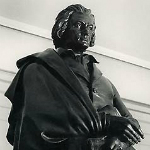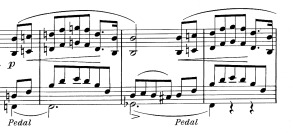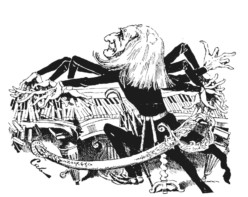My introduction of Emanuel Ax in May in Boston, as he received an honorary doctorate from New England Conservatory. "For a long time the listeners of the world have admired -- for a long time, the listeners in the world have loved Emanuel Ax. Hearing him play Century Rolls, the piano concerto written in 1997 by John Adams for him, first played by Mr. Ax and the Cleveland Orchestra, I was thrilled. As I was thrilled hearing him play Brahms’ … [Read more...]
Ensemble
Nantes, 2015 It's the last week of January, and I'm in France for the yearly mega-festival La Folle Journée. During 5 days, 330 concerts are being presented! (I play 5.) Folle Journée is the work of many people -- especially René Martin, founder and artistic director of Folle Journée. Recently, talking with Tim Page, I realized just what significant influences the ideas of a few concert presenters, a few producers (and critics) have been on … [Read more...]
Construction Zone
“Down below, in the dark of the street lamps, Eusebius said, as if to himself: Beethoven—what lies within this word! Beautifully, within the deep ringing of the syllables, sounds an Eternity.” (“Unten im Laternendunkel sagte Eusebius wie vor sich hin: Beethoven — was liegt in diesem Wort! schon der tiefe Klang der Sylben wie in eine Ewigkeit hineintönend.”) -- Robert Schumann, 1835 Also, this begins with a statue. Every day I'm in the Jordan … [Read more...]
How to cook a fish
The first time I ate skate, I'm sure it was a fillet that was sautéed and crispy. A piscatorial classic of the bistro, it was made with lots of butter, and probably capers. It's a classic that requires an act of virtuosity, the cutting of the fillet. Fancy fish sellers and well-trained chefs turned a rather ordinary ingredient into something most cooks couldn't really do. About ten years ago or more, skate started showing up unfilleted on … [Read more...]
Intertext
In his anxiety, Johannes Brahms read the slow movement of Ludwig van Beethoven's piano sonata, opus 10, number 3, and penned his own intermezzo in E-flat Minor, opus 118, number 6: (If D goes to C-sharp, then D Minor can go to E-flat Minor. Up can be down. 6/8 and eighth-notes, or 3/8 and sixteenths. Largo e mesto. Dies Irae? D-Es?) Earlier misprision led Brahms from playing the slow movement of Beethoven's Opus 2, number 2, to … [Read more...]
“large capable hands”
Every hand is different. Often large hands or hands with wide reach are thought to be an advantage in piano playing. In general, hands are getting bigger as bodies do. That makes some big stretches in old keyboard music more accessible, and less risky. Very wide fingers are a difficulty. It may be impossible to play in between the piano's black keys -- as it was for Walter Gieseking. We know that a few players of the modern piano (Daniel … [Read more...]
Faulty
In recent reviews, I've read about the structural shortcomings of Robert Schumann's Humoreske and the emotional emptiness of Pierre Boulez's piano sonatas. When I proposed a complete performance of Messiaen's Catalog of the Birds in Boston some colleagues told me it wasn't good music. Let's be cautious about reaching such judgments. Just because we have not yet heard (or given) a performance that makes sense of a scripted piece -- I don't … [Read more...]
Withdrawn
Sometimes a piece of music is "withdrawn" from a composer's catalog. Music that was composed, published, and available is taken back -- rescinded. You can't get it anymore. Usually, the composer has thought better of it: the music doesn't hold up now, the composer's style has changed a lot, it's an early piece that just doesn't seem good enough for public display... All of Philip Glass's early non-tonal music is unavailable now. I play(ed) a … [Read more...]








